The director and writer swap notes on the relationship between their roles and the challenges they have faced in their careers
Sarmad (Sam) Masud
Director of BBC1 thriller You Don’t Know Me, based on the novel by Imran Mahmood, which aired in December. He wrote and directed My Pure Land, the UK submission to the Oscars in the Foreign Language category, and Adha Cup, the first Urdu-language drama commissioned by Channel 4. He has also directed episodes of Bulletproof, Ackley Bridge and Hollyoaks, and exec produced upcoming film What’s Love Got To Do With It, written by Jemima Khan.
Furquan Akhtar
Writer and story consultant for the third series of ITV thriller The Bay, and penned an episode of Paul Abbott’s recent Sky Max show Wolfe. A previous winner of the BBC’s Alfred Bradley Bursary Award, his other writing credits include Deadendia, Coronation Street, Hollyoaks, CBBC’s The Dumping Ground and Wolfblood. He is currently developing his first feature film.
FURQUAN AKHTAR We’re speaking just before You Don’t Know Me launches. How do you feel in terms of nerves, or what it means for your career? I’m in a similar place where stuff is coming up and I don’t how it’s going to impact me.
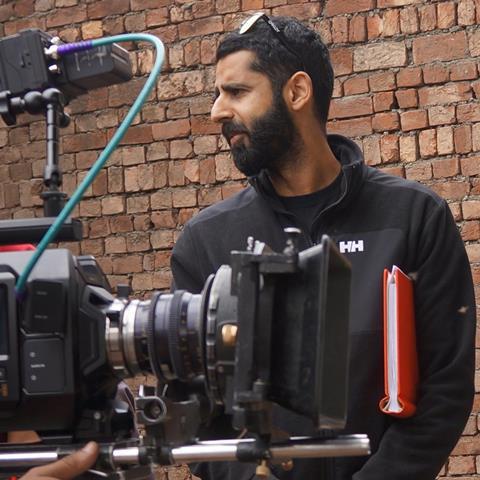
SARMAD MASUD I feel like we’ve created something interesting with it. It’s sometimes hard to balance what you think the show should be with what’s required for 9pm on BBC1, but we tried to be brave with our choices. In episode two, there’s a sequence that’s three minutes in the back of a car, and it’s just voiceover.
I’m not nervous though. Three years ago, I had a kid on the way and was made redundant in my job as a video editor for a charity. I’m not from a privileged background, so I feel like I haven’t had a choice in what I’ve done.
I’ve enjoyed all my jobs and have learned so much, but now I might be in a position where I can find the right one as opposed to the next one. Although I’m panicked at the moment because we’re building an extension and I need another job.
How about you?
FA I’m exactly the same.
SM You’re building an extension?
FA Yes, onto my Hackney flat. No, I don’t have that safety net either, so I was never going to say no to anything. Then The Bay came along, and it has been the best job that I’ve done. It’s such a juggernaut of a show, and the episode I’ve written is going to be the first one that goes out in January.
“I’m scared because The Bay is a big hit already and series three is a reboot, but its going to be special to tell a heartbreaking British Pakistani story on mainstream TV”
Furquan Akhtar
I’m scared because it’s a big hit already and series three is sort of a reboot [the show has a new lead], but also it’s going to be special to tell a heartbreaking British Pakistani story on mainstream TV. It’s what I always say about telling diverse stories – themes like grief and heartbreak are universal, it’s just telling them from a different perspective.
How do you find the writer-director relationship works best?
SM What really helps is when the writer doesn’t have an ego and you’re all working towards the bigger picture. If you’re good enough, you go with a better idea and you don’t have to insist something has to be done your way.
A good example was Ackley Bridge. At the end of my episode was a four-pager in an interior bedroom, a mother and daughter shouting at each other, and the police come to take one of them away.
It was a night shoot and they’d brought in four police vans, 40 police officers, all this kind of stuff. Instead of doing an exterior shot of the police, I had the blue lights going off inside the house, and you hear the police entering, which is more dramatic. The show is not about PC Plod, it’s about our leads, so you stay with them. That’s what I think a director brings – you try to elevate the material.
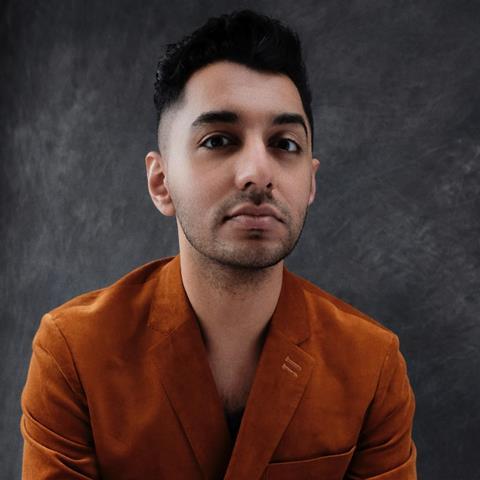
FA You’re absolutely right. And I don’t feel like I have an ego about these things – you want to make the best version you can. If a script editor had rung me about that and said, “We’re doing it this way, because this is what the director sees”, I would have been fine with it.
And it gives you a window to add something to it, right? Even if it’s a line change. Because there are some scenes that have lived with me from the moment I got the commission and when the rhythm is off, it’s like, “I wish they said it that way”.
That’s what’s great about radio drama – you can hear it straight away, so you can have that input. But TV is a beast. If it’s the heart-wrenching moment of the whole episode and something is not quite how I pictured it, that can hurt.
Maybe it is ego. I do give a lot of credence to directors when I’m writing – I want it to be collaborative, but I would like that dialogue to be open as well.
SM When you’re writing and you hear the dialogue, do you see it, too?
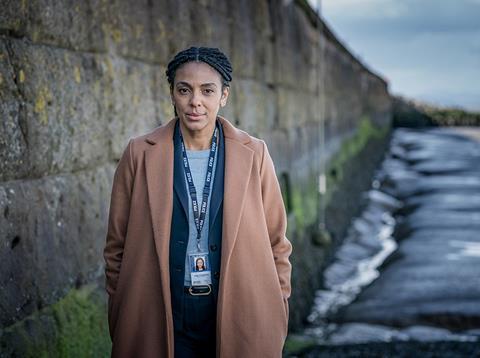
FA It depends on the scene. When I write, the characters are having a conversation in my head. Then I’ll go back and make sure it makes sense, tidy it up, and take out exposition.
SM That scene in Wolfe with Chaka Demus & Pliers, could you see that he dances around the room and then falls over?
FA Yeah.
SM When I started working on You Don’t Know Me, I had to do a page-turner with the writer Tom Edge, who’s a genius. Virtually every page, he was telling me what it meant. After about two episodes, I started to find it a bit handicapping. By the third, I was like, “Tom, I love you man, but I think you should direct this, because you’re telling me everything”.
He was taken aback and explained that wasn’t his intention – it was so I knew where he was coming from, and I should do it how I saw it because that was why I was there.
How did you get started in the industry?
FA I did English at Uni – being a teacher is still my back-up plan. I went to King’s College in London and hated it. London can chew you up and spit you out. I graduated into the recession, so I decided to go home and see what that was like, and then I fell back in love with Manchester.
While I was working at the Trafford Centre, I applied for a scheme where you get paid something like £10,000 for the whole year and you write for Corrie. It was invaluable experience.
SM Can you remember what it was like when you first walked in?
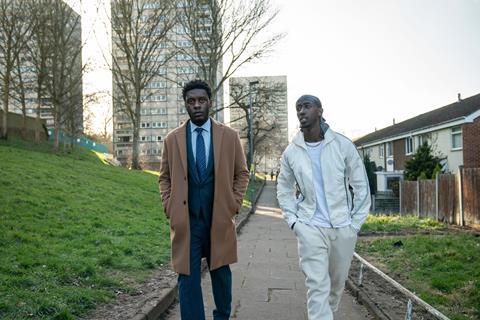
FA I can, because it is quite a sad memory. I’d just entered the building and the person who took me up to the room, who must have known it was a scheme for black and Asian people, said to me, “When are we going to have our turn?” At the time, in 2010, it felt like Corrie was hallowed ground. I think a lot of people resented me for getting onto that scheme, feeling that I had the keys to the kingdom. But I don’t want to be shitting on Corrie.
SM You always talk very highly of the show, so I don’t think you’re shitting on it by saying that. It’s funny, I’ve just finished a multimillion-pound shoot and I got asked three times if I was a supporting actor.
On another job, I was in a meeting and a head of department said: “Is the director not joining us?” I’m not saying it’s racism, but it’s a level of unconscious bias. They just don’t think that the brown guy with a beard can be the director. It’s shit.
FA Schemes [like the Corrie initiative] are important, but the problem is people don’t last a lot of time in the industry. I’m a rarity for still being here. I had a contemporary who was on the production side and he barely made it through the year because it becomes about surviving, rather than nurturing people so they have a long career.
SM I read your BBC Writersroom blog that said you want to let the ladder down behind you. Do you think we’re doing that because of our experience? I didn’t know anyone in the industry either. I did a TV & Film Design degree, almost by chance, and began the course thinking that all films are made in one shot. But after three years, I was the only one to graduate with a first, because I studied and worked hard.
If an emerging film-maker follows me on Twitter, I follow them back and tell them that I’m around if I can help, because I didn’t have anyone a couple of rungs above me who could advise and help me.
For You Don’t Know Me, we were trying to get a young person to shadow me. The word ‘shadow’ suggests they’re not good enough to do the job, so I said they would be my second unit director. It would have empowered them and gone on their credits. It didn’t work out in the end because of Covid, but I think it’s really important to look after people like that.
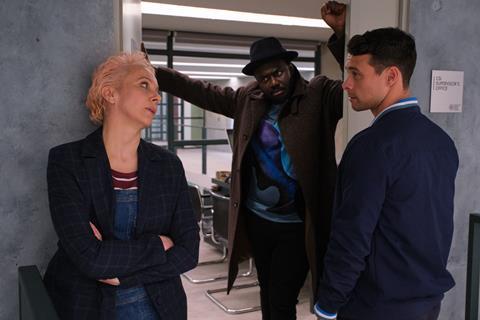
FA I absolutely agree. Last year, I felt helpless during the BLM protests, and didn’t know what would be helpful. So through Twitter, I did a call-out for people in the industry to read a script from a black writer. We got weird and wonderful stuff come through, and had brilliant people reading, like John Yorke, the creators of Humans and Lisa Holdsworth. There needs to be more of this.
I’ve been talking to Cameron Roach, who’s set up a production company called Rope Ladder Fiction that’s all about letting down the ladder, and we’ve spoken about doing something for British Asian writers, which I’m excited about.
SM It’s important that we bring everyone up with us, which I don’t think we have [so far].
FA When we were growing up, there was all sorts of British Asian culture, like Bollywood Or Bust and Network East, which just disappeared overnight. Then suddenly everyone was a terrorist and that was all we got to play or write about.
“Please hear me when I say this industry has fundamental race problems and we need to talk about them”
Furquan Akhtar
Your short film Two Dosas, which I loved, is an example of where the awkward Asian guy resonated with me. On-screen diversity needs to resonate off screen, and to feel authentic. Every sitcom now has a brown guy called Ray or something, and it doesn’t go beyond that.
SM Two Dosas never got commissioned. We shopped it around everywhere and no one picked it up.
Are you more comfortable talking about bias in the industry now you’re established?
FA If you haven’t got anything to show, you’re the angry brown man at the table shouting, “Where’s my slice?”. Now I’ve I paid my dues, so please hear me when I say this industry has fundamental race problems and we need to talk about them.
They used to claim the talent’s not there, but it is. I have a horrible feeling that people think they’ve done enough work and the drawbridge is coming back up because of the temperature of the country. I hope that’s not the case.
“I’ve recently realised who you are and where you come from is your power – so I lean into that”
Sarmad Masud
SM I feel like race is a thing, and class is too. If four directors come in for a job and I rock up from Nottingham, there seems to be an element where they just don’t trust someone with that background – there’s an unconscious bias. But I’ve recently realised who you are and where you come from is your power – so I lean into that.





























No comments yet